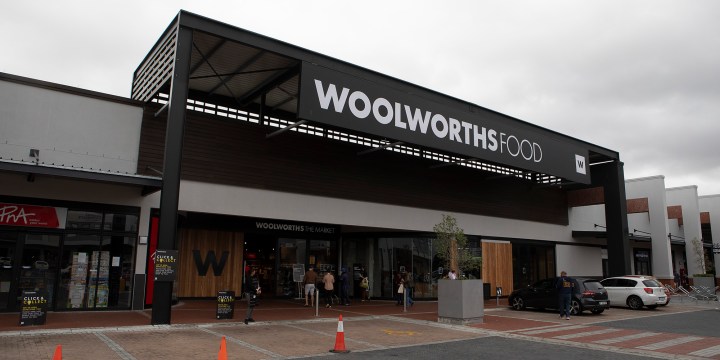FOCUS ON FRESH
Woolworths is doubling down on its appetite for the Food business

The retailer’s CEO, Roy Bagattini, says customers love their fresh offerings, which is why Woolworths is doubling down on the food business by opening more coffee shops, standalone food stores, liquor and pet outlets.
More than its fashion, beauty and homeware, Woolworths’ future seems to lie with cooked chickens, ready-to-eat foods, fresh produce and coffee.
The retailer posted strong results on Wednesday for the year ended 25 June, showing a 7% increase in turnover (to R85.7-billion) and an almost 30% increase in profit before tax of R6.7-billion. Much of that was derived from the food business.
Adjusted operating profit increased by 21.3% to R1.95-billion, with an operating profit margin of 13.2% for the year under review, compared with 11.9% in the prior year.
Shareholders can look forward to a juicy total dividend of 313c per share – that’s up 36.4%.
Woolworths Food is motoring ahead, bringing in significantly more revenue than the Fashion Beauty Home (FBH) business despite the considerable disruption caused by rolling blackouts, as the business maintained its industry-leading margins and return on capital.
Revenue from Woolworths Food rose from R39,24-billion in the previous period to just shy of R42.5-billion in the year under review, compared with the R14.63-billion derived from the FBH segment this year (up from R13.5-billion in 2022).
The Food business grew turnover and concession sales by 8.5% and by 6.3% on a comparable store basis for the full year. Prices grew by 8.3% – below product inflation of 9.9%.
Online sales increased by 28.5% and contributed 3.8% of South African sales, supported by the further roll-out of the Woolies Dash delivery service.
The FBH business has delivered above-market sales growth and improved profitability. It has also repurchased shares worth R2.9-billion during the current year, bringing the total buyback over the past two years to 6.6% of issued shares.
Maintaining Woolworths’ prized eight-minute cold chain rule – which declares anything left outside the cold chain for longer than eight minutes as unfit for sale – proved expensive. Foods unfit for sale are channelled into the group’s food banks and charity process. Almost R1-billion worth of food was donated in the past year.
Rolling blackouts cost more in diesel and increased cost inflation, which grew expenses by 12.4%. Bagattini said that since about 65% of what they sell is classified as fresh, blackouts have a massive impact on the business.
“We can’t afford to have power outages, even prior to load shedding, so we obviously had to step up our investments in this space to keep our product quality where it needs to be. We’ve been spending about R30-million a month on this, which we haven’t passed to customers – we found offsets in our supply chain and within the business.”
Woolworths Financial Services increased by 14.5%, driven by growth in new accounts and credit card advances. Impairments rose from 4.7% to 7.3%, as customers came under more pressure.
The Country Road Group’s sales grew by 12% due to strong growth from the Country Road, Politix and Witchery brands.
Food has been the biggest driver of their strong results, Bagattini said, which is why they are doubling down on their core proposition.
“We have stuck to our knitting with regards to our business… We do have categories within the business that over-trade relative to the space we afford them, so we want to expand our stores … put some new stores down in areas and parts of the country that we don’t exist in today.”
The greater focus on food is also likely to see expansion into pet, wellness, food service and liquor.
“Liquor is currently less than 1% of our turnover. For a lot of our competitors, it’s more than 10%. So we see some significant ‘whitespace opportunity’ to go there.”
The pet segment, which is worth about R8-billion, is growing in the double digits in South Africa, as people consider pets as integral to their families. DM




















Hardly surprising that Woolworths posted a pre-tax profit of 30%. Some of their products are almost 50% more expensive than other outlets, with prices increasing monthly.
If WW would only sell more natural fabrics instead of nylon and polyester the sales would improve. As much as I like fresh wholesome foods, so do I like natural fabrics. I also find paying R500 for a blouse insane.